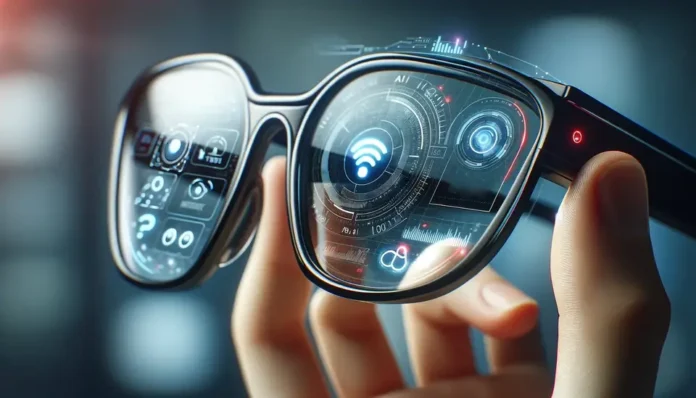In recent years, technological advancements have propelled us into a realm where science fiction seems closer to reality than ever before. Among these groundbreaking innovations, augmented reality glasses stand out as a beacon of the future, promising to reshape how we perceive and interact with the world around us. As we delve deeper into the possibilities of AR glasses, it becomes increasingly evident that they are not just a passing trend but rather a transformative tool that has the potential to revolutionize numerous industries and aspects of our daily lives.
Understanding Augmented Reality Glasses
Augmented reality glasses, often referred to as AR glasses, are wearable devices that overlay digital information onto the user’s view of the physical world. Unlike virtual reality (VR) devices, which immerse users in entirely virtual environments, AR glasses enhance the real world by superimposing computer-generated images, videos, or information onto the user’s field of vision. This blending of the virtual and physical realms opens up a myriad of possibilities across various domains, from entertainment and gaming to healthcare, education, and beyond.
The Evolution of AR Glasses
The concept of augmented reality dates back several decades, but it is only in recent years that technological advancements have made AR glasses a viable and accessible reality. Early iterations of AR glasses were bulky, cumbersome, and lacked the processing power to deliver a seamless user experience. However, rapid advancements in hardware miniaturization, display technology, and computing power have led to the development of sleeker, more sophisticated AR glasses that offer immersive and intuitive experiences.
Applications Across Industries
One of the most exciting aspects of augmented reality glasses is their versatility and potential applications across a wide range of industries. In the field of healthcare, for example, AR glasses can provide surgeons with real-time data and guidance during complex procedures, enhancing precision and improving patient outcomes. In education, AR glasses can transform traditional learning environments by bringing subjects to life through interactive simulations and virtual field trips.
In the retail sector, AR glasses enable customers to visualize products in their environment before making a purchase, revolutionizing the shopping experience and reducing returns. Similarly, in the field of architecture and design, AR glasses allow professionals to visualize building designs in situ, facilitating collaboration and decision-making processes.
Advantages and Challenges
While the potential benefits of augmented reality glasses are vast, they are not without their challenges. One of the primary obstacles facing widespread adoption is the need for compelling and intuitive user experiences. Designing AR applications that seamlessly integrate with the user’s environment and enhance rather than distract from their surroundings is key to driving adoption.
Additionally, concerns around privacy and data security must be addressed to build trust among users. As AR glasses become more prevalent, ensuring robust privacy safeguards and transparent data policies will be essential to safeguarding user privacy and security.
Looking to the Future
As technology continues to evolve at a rapid pace, the future of augmented reality glasses looks brighter than ever. With ongoing advancements in areas such as artificial intelligence, machine learning, and spatial computing, AR glasses are poised to become even more powerful and ubiquitous in the years to come.
Imagine a world where information is seamlessly integrated into our daily lives, where virtual companions guide us through unfamiliar environments, and where educational experiences transcend the boundaries of the classroom. This is the promise of augmented reality glasses—a future where the line between the digital and physical worlds blurs, and the possibilities are limited only by our imagination.
In conclusion, augmented reality glasses represent a transformative leap forward in human-computer interaction, offering boundless potential to revolutionize how we work, learn, play, and experience the world around us. As we continue to unlock new possibilities and push the boundaries of what is possible, the journey towards realizing the full potential of AR glasses promises to be an exhilarating and transformative adventure.




